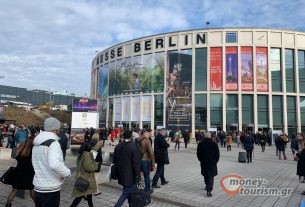Seeking to attract the biggest market on the horizon, a growing number of hoteliers are gearing brands toward the “Millennial mindset.”
The latest technology and the highest-speed Wi-Fi appeal to their need to always be connected, while new room designs appeal to their sense of authenticity. From narcissistic to tech-savvy to adventure junkies, the adjectives that describe them are all reflected in hoteliers’ concept for new brands.
Born roughly from 1982 to 2000, Millennials are the nation’s largest generation, comprising one-fourth of the population. With 80 million of them in the United States alone, they are expected by next year to be the biggest spending block of consumers.
Hilton stays Tru
The impact is wide-reaching; Millennials are “influencing much more than just their generation,” said Phil Cordell, global head of focused service brand management for Hilton.
Tru by Hilton, which officially launched a few weeks ago, is the latest brand to be aimed at Millennials.
“They’re such a part of the business conversation,” Cordell said, due not just to the influence they hold today, but even more so, tomorrow. They might not be the core customers of hotels yet—but they will be in 5 to 10 years, when they enter their peak earning, spending, and traveling years.
“As Millennials age, we can grow and change and flex the brand” to grow with them, Cordell said.
One of the main features of Tru is “the hive,” a large, open space that’s based on Millennials’ social nature. In this area, there are dedicated zones for working, eating, and gaming.
“We put all those things together, in ways people can really feel connected,” Cordell said. “That’s a big part of the Millennial mindset.”
Tru Hotels will open in Atlanta, Nashville, Portland, Dallas, Chicago, and Boston, with the first few expected to open this year.
Around the Corner at Hyatt Centric
Hyatt Hotels Corp. lifestyle brand Hyatt Centric also has an open social space, called “The Corner.” The area has flexible seating arrangements, bar or food services, and computers and printers.
Branded as a “unique hotels for unique travelers,” Centric has boutique rooms with name-brand bath products, food and cocktail kits, and, of course, free Wi-Fi.
Three Hyatt Hotels will be reflagged as Hyatt Centric hotels: Hyatt The Pike Long Beach (California), Hyatt Escala Lodge at Park City (Utah), and Hyatt Market Street, The Woodlands (Texas). The company also is opening a property in Uruguay this year, and plans to open one in Japan in 2018.
Marriott leads the pack
Marriott International’s chief executive officer Arne Sorenson acknowledged that a big factor in the $12 billion takeover of Starwood Hotels & Resorts was its lifestyle brands, the first in the space, W Hotels and Aloft. The W brand, launched in 1998, was arguably the first to deploy “living rooms” versus lobbies.
With its popular hangouts for young locals and travelers, W Hotels plans for two more, in Aspen and Madrid.
Tech-forward and edgy Aloft Hotels is one of Starwood’s fastest-growing brands. A tech leader, it launched the world’s first emoji-only room-service menu. It also has innovations like “Botlr,” the robotic butler, and digital room keys. Rooms are equipped with smart mirrors that in addition to your reflection can show a live feed with weather updates. Next-gen travelers can link it up to their smart phone for a more personalized experience.
Marriott also launched its own Millennial-branded hotels, AC Hotels and Moxy Hotels, both of which are expanding. Moxy will open its first properties in the United States this spring, in New Orleans, Los Angeles, and Tempe, AZ. It expects to have nearly 150 hotels around the world within 10 years.




